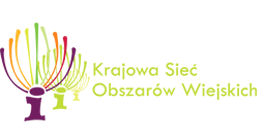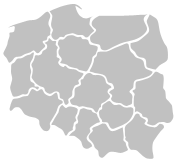ENRD Newsletter November 2017
NEWS:
Published today (29 November 2017) – read it here.
The 9th NRNs’ Meeting (15-17 November 2017 – Nicosia, Cyprus) discussed joining up activities and launching innovative networking tools with and through the ENRD, and was followed by a workshop on social inclusion in rural areas.
Network representatives from 21 countries agreed on simplified formats for collecting network statistics and exchanging on thematic initiatives, as well as on the future approach to identifying and presenting good practice examples. They further progressed joint projects and networking tools related to innovation, rural proofing, and communication.
The linked event on social inclusion underlined that unemployment and poverty are at the base of exclusion, with some groups such as migrants, the elderly or Roma particularly affected. Participants identified innovative practices to promote inclusion and suggested actions for attracting young people to rural areas, strengthening entrepreneurial capacities, improving the perception about rural areas, and better communicating rural attractiveness.
The ENRD Contact Point kicked off work on the topics of ‘Sustainable Management of Water and Soils’ and ‘Smart Villages’ with first meetings of dedicated Thematic Groups (TGs) on 24 October 2017 and 26 October 2017 respectively.
The two TGs will exchange and provide recommendations on how the Rural Development Programmes (RDPs) can be best used to support: 1) water and soil management and 2) rural services through digital and social innovation. Information on TG meetings and related outputs will be continuously uploaded on the corresponding web pages.
Two recent opinions of the European Economic and Social Committee (read here) and the Committee of the Regions (read here) call on EU and national authorities to empower villages through integrated and flexible programme support.
Both opinions make the case for: overcoming the digital divide through the provision of fast broadband; boosting rural-urban partnerships; improving public services in transport, education, training, health and social care; and supporting bottom-up approaches such as LEADER/CLLD.
Follow ENRD’s ongoing thematic work on ‘Smart Villages’.
The EAFRD Projects Brochure on ‘Supporting Rural Business’ is now available in English, French, German, Italian, Spanish and Polish on the ENRD website.
This edition showcases examples of Rural Development Programme (RDP) projects that either support individual rural businesses or aim to create an enabling environment that allows businesses to prosper in rural areas. It is part of the broader ENRD thematic work on supporting ‘Rural Businesses’, which also features a dedicated edition of the EU Rural Review (issue 24).
Explore the latest ENRD materials identifying ways of supporting effective and efficient management of soils and water, including:
EU-level overview of Rural Development Programme (RDP) support to resource efficiency;
Set of recommendations on how to achieve resource efficiency objectives through the RDPs;
Case studies on six RDPs implementing relevant Measures;
Collection of over 100 good practice examples.
ENRD work on this topic will feature dedicated editions of the EU Rural Review and the EAFRD Projects brochure, due for publication in 2018.
A five-point action plan with concrete deadlines to roll out rural broadband throughout the EU was launched by the European Commission on 21 November 2017.
The plan includes actions to boost rural broadband investments through the set-up of national Broadband Competence Offices; a ‘rural proof test’; a common methodology for planning, reporting, and monitoring of investments; ‘broadband missions’ to rural areas with low levels of broadband coverage.
The third European Rural Parliament (18-21 October 2017 – Venhorst, The Netherlands) resulted in the Venhorst Declaration, calling on “citizens and policy-makers to support the vitality of rural areas and to ensure that general policies and programmes are rural proofed.”
The Declaration – supported by over 250 representatives of rural communities in 40 European countries – advocates the creation of sustainable rural communities and a new era of bottom-up development. Additionally, participants at the event made proposals for a new European fund for Community-led Local Development (CLLD).
Several Horizon 2020 calls seeking to fund research and innovation projects under the themes of ‘Rural Renaissance’ and ‘Sustainable Food Security’ were launched in late October 2017.
With these funding opportunities, falling under the 2018-2020 work programme, the EU is looking to invest approximately €1 billion in sustainable resource management and smarter, greener and more circular rural economies. Find your way through the 2018 calls – read the dedicated EIP-AGRI brochure.
The 8th meeting of the Rural Networks’ Steering Group, SG (23 October 2017 – Brussels, Belgium) discussed the outcomes of the networks’ self-assessment exercise and developed recommendations for the future work of the networks.
The findings from the self-assessment of the European networks' performance and the related SG recommendations will contribute to the final report to be presented at the upcoming Rural Networks’ Assembly meeting.
A new report by the European Court of Auditors examines the 2014-2020 EU programming framework for rural development spending and several national and regional Rural Development Programmes (RDPs) to identify whether a focus on performance and results is achieved in practice.
The report advocates less complexity in the RDP content requirements and makes recommendations to the European institutions and EU Member States on how to plan and implement an improved results-based approach in the next programming period. The report is available in 23 EU languages.
The recent international conference on climate change COP23 (6-17 November 2017 – Bonn, Germany) saw progress in negotiations on agriculture with a decision paving the way for concrete technical and scientific recommendations to help promote climate action on the ground.
The decision addresses issues such as adaptation, soils, nutrient use and livestock management, as well as socio-economic and food security dimensions.
For further information on the agricultural aspects discussed at the event, see the ‘three takeaways for climate, forestry and agriculture’ and a briefing on EU agricultural policy and climate goals, produced by the Institute for European Environmental Policy (IEEP).
See more information on the ENRD website













